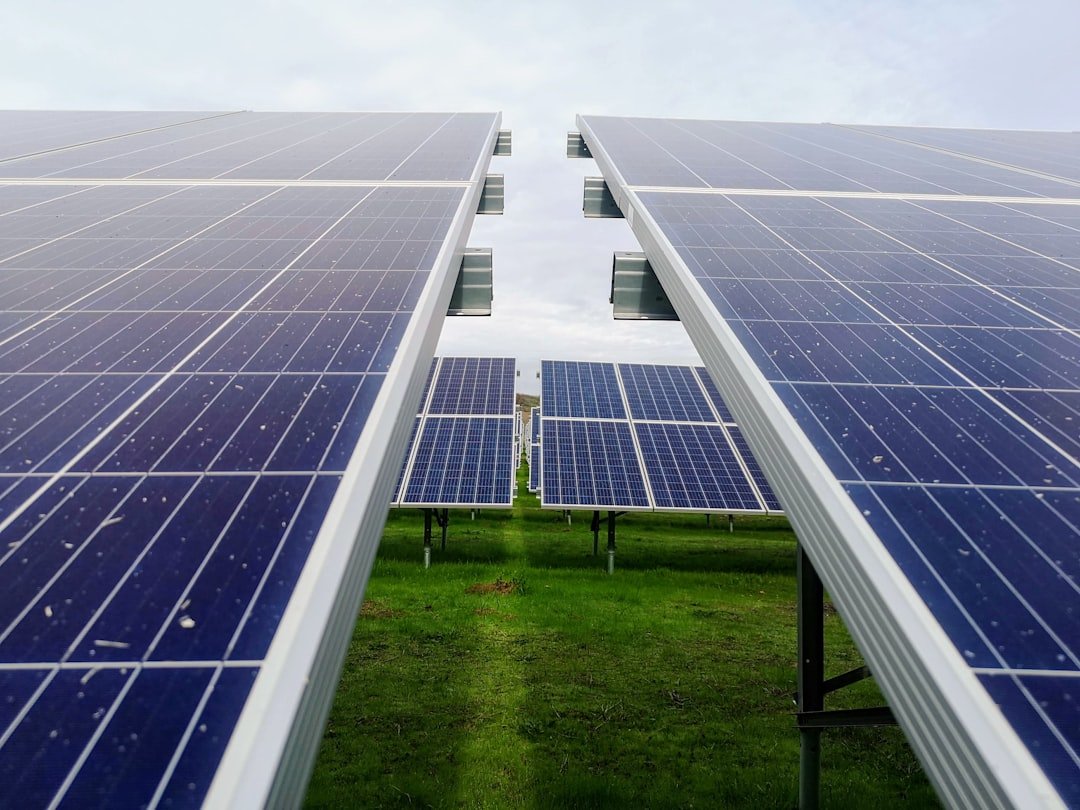Ocean pollution’s effects on marine life have made it one of the 21st century’s most urgent environmental problems, having a major impact on marine ecosystems. The oceans make up more than 70% of the Earth’s surface, yet their size belies how delicate their ecosystems are. Pollutants that alter their habitats and food sources are posing a growing threat to marine life, from the tiniest plankton to the largest whales. Chemicals and heavy metals are examples of toxic substances that build up in sediment & water, causing bioaccumulation in marine life. For marine species, this buildup can cause serious health problems like impaired growth, higher mortality rates, and unsuccessful reproduction.
Key Takeaways
- Ocean pollution has a significant impact on marine life, leading to habitat destruction, species endangerment, and ecosystem imbalance.
- Sources of ocean pollution include industrial waste, agricultural runoff, oil spills, and plastic waste, all of which contribute to the degradation of marine environments.
- Ocean pollution has serious consequences for human health, including the consumption of contaminated seafood and exposure to harmful chemicals and toxins.
- Efforts to combat ocean pollution include international agreements, technological innovations, and community-based initiatives aimed at reducing and preventing pollution.
- Plastic pollution plays a major role in ocean contamination, posing a threat to marine animals and ecosystems and requiring urgent action to address the issue.
Also, the delicate balance of marine ecosystems is altered by ocean pollution. Coral reefs, which are sometimes called the “rainforests of the sea,” are especially susceptible to pollution. Algal blooms caused by nutrient runoff from farming activities suffocate coral reefs by denying them oxygen and sunlight. In addition to putting numerous marine species in jeopardy, the loss of these crucial habitats also affects the livelihoods of communities that rely on tourism and fishing.
Long-term effects on ecosystem stability and biodiversity worsen as marine life finds it difficult to adjust to these shifting conditions. Sources of Ocean Pollution: Recognizing the Issue It is essential to determine the main causes of ocean pollution in order to address it effectively. Agricultural runoff, which transports pesticides & fertilizers into streams that ultimately empty into the ocean, is one of the biggest contributors. The nutrient overloads caused by these chemicals can result in toxic algal blooms that lower water oxygen levels & produce dead zones that are inhospitable to marine life.
Untreated sewage and industrial discharges also add to the pollution of coastal waters by introducing a variety of dangerous substances that have the potential to completely destroy local ecosystems. Plastic waste is a significant contributor to ocean pollution. Each year, millions of tons of plastic enter the oceans from a variety of sources, including improper waste disposal, littering, and even microplastics from personal care products. Once in the ocean, plastic waste can linger for hundreds of years before dissolving into smaller pieces that marine life can consume. This directly endangers marine life, but it also makes its way into the food chain and eventually affects human health.
| Metrics | 2010 | 2015 | 2020 |
|---|---|---|---|
| Plastic Waste (million tons) | 8.0 | 9.5 | 11.0 |
| Marine Species Affected | 1000 | 1500 | 2000 |
| Oil Spills (number) | 10 | 8 | 5 |
To effectively reduce ocean pollution & safeguard marine ecosystems, it is imperative to comprehend these sources. The Health Effects of Ocean Pollution Ocean pollution has serious health effects that go beyond what happens to marine life. A major worry is contaminated seafood since human-consumed fish and shellfish can accumulate contaminants like heavy metals and microplastics. According to studies, prolonged exposure to these toxins can cause major health problems, such as cancer risk, reproductive issues, and neurological disorders. Since seafood is a major source of protein for many communities, the effects of ocean pollution on public health are significant.
Also, those who participate in recreational activities like swimming or surfing may experience a variety of health issues as a result of contaminated coastal waters. Gut disorders & skin infections can be brought on by pathogens found in sewage and runoff. Particularly at risk are vulnerable groups, such as the elderly and children. In addition to placing a strain on public health systems, the cost of treating these illnesses can have an effect on local economies that depend on the fishing & tourism sectors.
Therefore, combating ocean pollution is not only necessary for the environment but also for public health. Efforts to Address Ocean Pollution: What Is Being Done Numerous local, national, and international initiatives are being implemented in response to the escalating ocean pollution crisis. Stricter rules on agricultural practices and industrial discharges are being implemented by governments in an effort to lessen runoff into waterways. To reduce plastic waste, for example, several nations have enacted laws that forbid single-use plastics and encourage recycling initiatives.
These actions are intended to safeguard marine ecosystems & reduce the quantity of trash that enters oceans. Non-governmental organizations (NGOs) are essential in promoting legislative changes and increasing public awareness of ocean pollution. Public awareness campaigns emphasizing the value of cutting back on plastic use and getting involved in beach clean-ups have gained momentum globally. The necessity of international collaboration in addressing ocean pollution is also emphasized by international accords like the Sustainable Development Goals of the United Nations.
In order to effectively address this transboundary issue & guarantee the health of the oceans for future generations, cooperation between nations is crucial. Ocean Contamination & Plastic Pollution Plastic pollution is one of the most common types of ocean contamination. Plastic has a significant impact on marine life, with an estimated 8 million tons of it entering the oceans annually. Seabirds, turtles, and other marine animals may ingest large pieces of plastic debris or become entangled in them. Ingestion of plastic can cause starvation, internal injuries, and even death.
Also, it gets harder to remove plastics from the environment as they decompose into microplastics, which are tiny particles smaller than five millimeters. Since a variety of marine organisms, including plankton at the base of the food chain, can consume microplastics, they present an additional risk. Individual species are impacted by this ingestion, but ecosystems as a whole are also impacted. Concern over the possible negative effects of microplastics on human health is growing as they are found in larger fish that are eaten by humans.
Developing biodegradable substitutes & improving waste management systems are two creative ways to tackle the problem of plastic pollution and stop plastic from ever getting into waterways. Sustainable fishing methods are essential for preserving the health of marine ecosystems & reducing the negative effects of ocean pollution. Significant fish population declines brought on by overfishing have upset food webs and endangered biodiversity.
By putting policies in place to stop fish farms from releasing nutrients into nearby waters, for example, ethical aquaculture operations can lessen the strain on wild fish populations.
Communities can promote livelihoods and environmental health by emphasizing sustainable fishing methods. Fostering resilience in marine ecosystems in the face of persistent challenges from pollution and climate change requires the incorporation of sustainable practices into fisheries management. The Impact of Climate Change on Ocean Pollution Rising temperatures, ocean acidification, and pollutant dynamics interact in a complex way as a result of climate change, which intensifies already-existing problems with ocean pollution.
Because harmful algal blooms thrive in nutrient-rich environments that are frequently fueled by agricultural runoff, warmer waters can increase their frequency and intensity. These blooms create toxins that are dangerous to both humans and marine life in addition to lowering oxygen levels. Also, as rising carbon dioxide levels dissolve in seawater & change its chemistry, climate change adds to ocean acidification.
The calcifying organisms that depend on stable pH levels for growth and survival, like corals and shellfish, are seriously threatened by this shift. Ecosystems as a whole are disrupted as these species decline as a result of stressors linked to pollution and acidification. Ocean pollution can be lessened and marine biodiversity can be protected by addressing climate change through mitigation measures. How Individuals Can Help Prevent Ocean Pollution While large-scale programs are essential to the fight against ocean pollution, individual acts are also very important in changing the situation. One can greatly lessen their ecological footprint and help to clean up the oceans by making small lifestyle changes.
Reducing plastic waste entering waterways, for example, can be achieved by using reusable bags, bottles, & containers. People can also support laws intended to lessen pollution in their neighborhoods or take part in neighborhood clean-up campaigns. Educating people about ocean pollution is another effective strategy.
People can encourage group efforts to save marine environments by educating friends and family about its causes and effects. Contributions or volunteer labor to organizations devoted to ocean conservation aids in the larger-scale fight against pollution. Every action matters in the end, & people who make a commitment to choosing environmentally friendly options help create a healthier planet for all living things. Finally, it should be noted that ocean pollution is a complex issue that calls for coordinated action from people, groups, governments, and institutions internationally. By identifying the causes of this crisis & comprehending its effects on human health and marine life, society can take significant action to effectively combat it.
There is a chance to restore the health of our oceans for future generations through ethical fishing methods, conscientious consumption, and cooperative efforts to combat climate change & reduce plastic waste.
One related article to ocean and pollution is “Effective Solutions for Air Pollution and Climate Change” which discusses the impact of pollution on our environment and offers solutions to combat these issues. To learn more about this topic, you can visit the article here.



